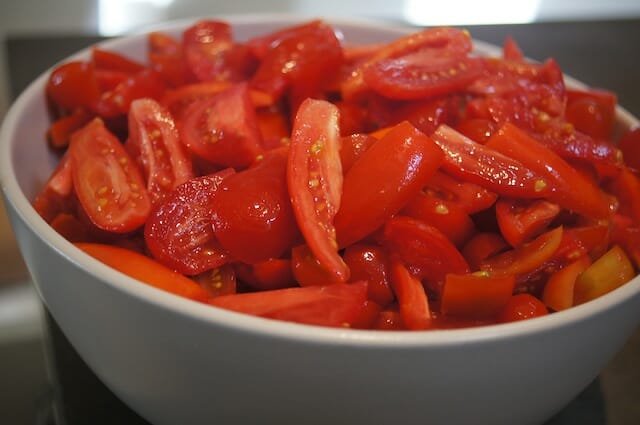There are two things I’m definitely not: 1) particularly savvy about molecular biology 2) particularly political. Since tackling the topic of GMOs seems to involve both, I feel a bit out of my comfort zone. I’d much rather retreat to my kitchen to make puffy pancakes and drink tea than discuss the politics of genetically altering our food supply.
But the subject of GMOs is a pressing one, especially here in California where we face an important vote next month involving labeling genetically modified foods. So, here goes.
First, what exactly is a GMO other than a term we throw around loosely but often don’t really understand (hello, myself). A GMO is a genetically modified organism, that is, a plant or meat product that has been tinkered with in a lab to alter its genetic make up. It goes beyond straight up breeding, but actually means taking genetic material from one animal or plant and introducing it to another in order to develop certain desirable traits: be more resistant to pests, tolerant to herbicides, resistant to diseases, tolerant to cold, tolerant to drought, more nutritious, etc.
Whether this is very very good or very very bad depends on who you ask. Big companies like Monsanto, who develop GMO crops will tell you that the potential is there to “feed the world,” minimize the use of pesticides, and make our food supply more nourishing. On the flip side are environmentalists, health professionals, food safety advocates, and other activists, who tell quite a different story, claiming that GMOs reap harm to the environment and our health, and offer little in the way of providing food to impoverished people.
Where do I stand? A little confused, and very skeptical of the promises by Monsanto and others like it. Perhaps, one day GMO crops will indeed feed the hungry by the thousands. But for now, that doesn’t appear to be the case. And I don’t see GMOs as necessarily moving us in the right direction. Do I really want/need a tomato that stays fresh for six weeks?
Most worrying is that there isn’t any solid research on the impact of GMOs to our health. We really don’t know the long-term effects of eating genetically modified foods. And we are eating them. According to The Center for Food Safety, upwards of 70 percent of processed foods in our supermarkets contain genetically engineered ingredients. Food labeled “100 % certified organic” doesn’t contain GMOs, but beyond that, there is no way to know if a food is genetically modified.
Which brings me to Proposition 37, slated for the California ballot next month. If you don’t live in California, bear with me, and perhaps listen up because this sort of legislation is known to travel, so may show up in your neck of the woods soon.
Here’s what Prop 37 will do: 1) Require that foods with GMOs be labeled accordingly 2) Prohibit such foods from being labeled “natural.”
In essence Prop 37 is about transparency, allowing consumers to know what they’re buying. It’s no different than making an informed choice about buying toys manufactured in China or cookies made with trans fats. Voting for Prop 37 isn’t voting for or against GMOs, it’s simply voting for the right to know what’s in the food you feed your family.
Fifty countries around the globe already require GMO labeling including Japan, India, China, and every country in Europe. I know we’re always telling our kids not to do something just because everyone else is doing it, but perhaps this is a wise exception.
For more about Prop 37, check out the Right to Know campaign.
If you want to talk to your kids about GMOs this “OMG GMO” rap on You Tube is a good place to start.
